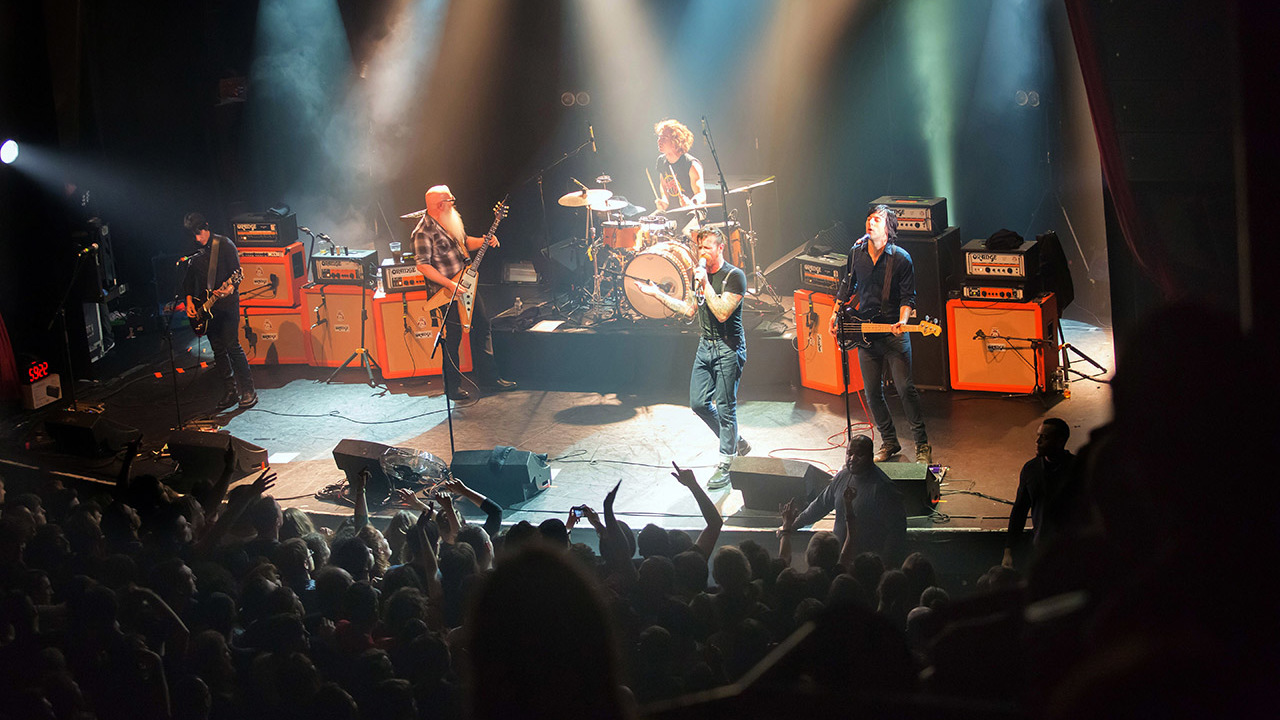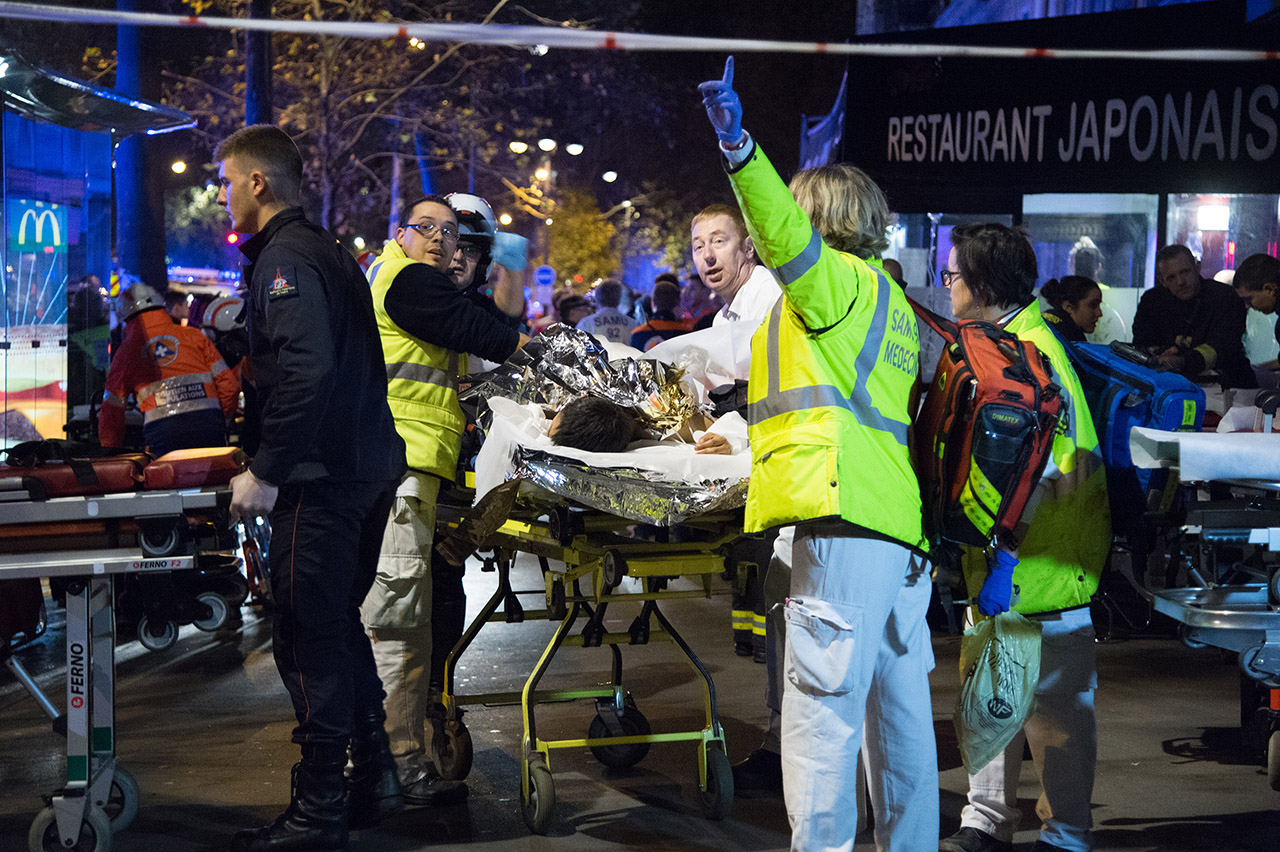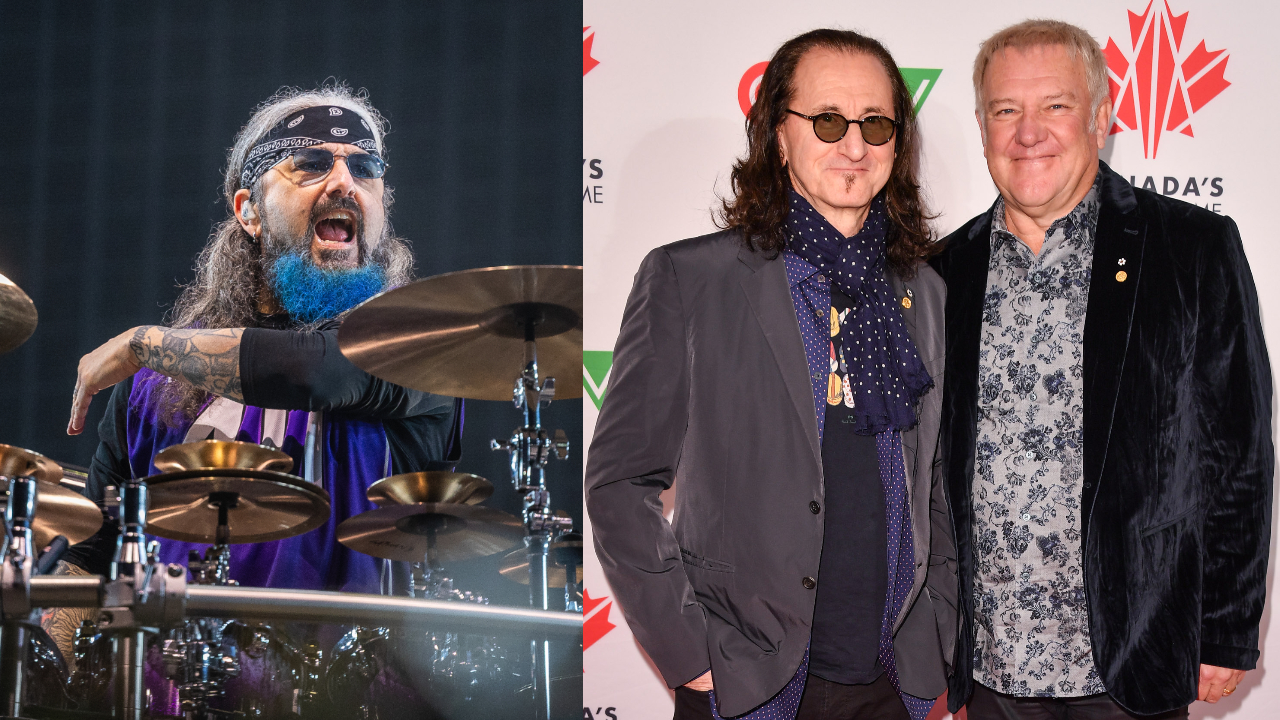The Paris attacks: "Terrorists won't take away our music"
In the wake of the attacks in Paris, we ask the industry experts what it all means for the future of live music.

Select the newsletters you’d like to receive. Then, add your email to sign up.
You are now subscribed
Your newsletter sign-up was successful
Want to add more newsletters?

Every Friday
Louder
Louder’s weekly newsletter is jam-packed with the team’s personal highlights from the last seven days, including features, breaking news, reviews and tons of juicy exclusives from the world of alternative music.

Every Friday
Classic Rock
The Classic Rock newsletter is an essential read for the discerning rock fan. Every week we bring you the news, reviews and the very best features and interviews from our extensive archive. Written by rock fans for rock fans.

Every Friday
Metal Hammer
For the last four decades Metal Hammer has been the world’s greatest metal magazine. Created by metalheads for metalheads, ‘Hammer takes you behind the scenes, closer to the action, and nearer to the bands that you love the most.

Every Friday
Prog
The Prog newsletter brings you the very best of Prog Magazine and our website, every Friday. We'll deliver you the very latest news from the Prog universe, informative features and archive material from Prog’s impressive vault.
The November 13 terrorist attacks in Paris shocked the world. By far the worst of the atrocities occurred at the French capital’s Bataclan venue during a concert by the Eagles Of Death Metal, where 89 people were killed. In total the attacks claimed 129 lives.
The Californian band were performing to a capacity crowd of 1,500 when Islamic State extremists wearing suicide belts took people hostage and fired shots, before blowing themselves and others up as police stormed the building.
Among the dead at the venue were Nick Alexander from Colchester, who had been selling merchandise for the band, Mercury Records’ international product manager Thomas Ayad and French rock journalist William B. Decherf.
So what’s next for the future of live music after the Bataclan tragedy? Will the gig-going experience ever be the same again? What’s being done to make you, the fans, feel safe, secure and unthreatened?
We talked to an array of industry experts – artists, promoters, booking agents and security men – and posed them the questions that _you _want answering.
Did Anybody See This Coming?
Shootings have occurred at concerts before – remember the senseless on-stage murder of ex-Pantera guitarist Dimebag Darrell Abbott in Columbus, Ohio in December 2004 – but nothing on the scale of the Bataclan tragedy. The killings took everyone by surprise.
Sign up below to get the latest from Classic Rock, plus exclusive special offers, direct to your inbox!
Andy Copping [promoter, Live Nation]: “I don’t think anybody could have expected something as tragic as this, or as serious as this, by any stretch of the imagination. It was a bolt out of the blue, totally.”
Chris Alexander [independent promoter at the Leamington Spa Assembly; former promoter at the London Astoria]: “Not at a rock venue, I didn’t. I don’t think anyone thought it would happen.”
Simon Battersby [director, Showsec Security]: “I’ve worked in this industry for 22 years and terrorism has been with us for a long time. It was only a matter of time before a music event was targeted. But anywhere large numbers of people gather presents a terrorism risk.”
How can venues take measures to minimise such tragedies in the future?
It goes without saying that fans must be aware of the indiscriminate nature of terrorist attacks. Vigilance is key. But no venue can be guaranteed 100 per cent safe.
Joe Elliott [Def Leppard]: “What can a security guard or bouncer do in the face of an AK47 or the like? It goes a lot deeper than just ‘security’. This is a world problem, not a gig problem.”
Jon Vyner [promoter for Tidal Concerts and London’s The Underworld]: “I don’t think there’s much we can do, really. Aside from posting fully armed guards inside and outside the venues – and that would only serve to spread fear. If the intelligence services who are there to prevent this sort of thing happening can’t do it, will our usual security on the door do any better? Of course not.”
Phil Campbell [singer, the Temperance Movement]: “I’ve seen gig security as tight as you like. It’s already ramped up, as it stands. Nobody expects that shit but I suppose we really should now – we should expect anything to happen. It’s gone into this horrible fucking war zone.”

How will gig security be affected?
The potential ramifications of the attacks in Paris are widespread, ranging from extra bag checks or even scanners on the doors of venues to a stronger security presence at gigs. Then there’s the question of whether the ticket-buying music fan will end up footing the cost of extra security measures.
Alexander: “What is not generally known by the public is that there are existing laws concerning security at gigs. You need a certain amount [of operatives] per member of the public, and they must be positioned in certain points [in the hall], and those laws are already quite robust. Hiring more security people would increase ticket prices – but you would need quite a large number of them to make a difference.”
Copping: “It’s never a case of just opening the doors. There are bag searches and random pat-downs already in place. Having said that, I think that venues will tighten up the procedures they’ve already got. Unless there’s a strict ruling from the Government that every single person is going to have to be searched before they go in, I can’t see any additional costs being put on the ticket price.”
Elliott: “For a while now, certain gigs have had metal detectors to stop knives, chains et cetera getting through. But this is a whole new situation that gigs are never going to be prepared for. Millions, if not, billions, has been spent on airport security. But other than what’s in place already, who’s going to bother doing that at a concert hall?”
Is my favourite band less likely to tour now?
After the first Gulf War in the early 1990s, several US bands cancelled their overseas tours. A similar thing happened in the wake of 9⁄11. After the attack on Le Bataclan, several acts understandably cancelled their gigs in Paris, including Deftones, Marilyn Manson and U2.
Copping: “I would certainly hope not. UK bands didn’t stop going to America in the wake of 9⁄11 and I would hope that it’s the same situation vice versa.”
Elliott: “I believe it will affect bands, especially American ones. It’s so expensive to tour Europe compared to the US, this may well tip it over the top.”
Vyner: “This is a horrible situation. American bands could think twice about coming over because they think they’ll be entering a war zone. You can’t blame them for believing this, because they are thousands of miles away.”
Alexander: “Some of the older, retro bands are bound to have second thoughts. Their wives will say: ‘Don’t get on that plane, we’ve just had a new grandchild.’”
How long will this last?
The ripples from the attacks in Paris were felt instantly. Whether it changes the live scene forever remains to be seen.
Campbell: “People are going to be scared for a while but hopefully things will return to normal before too long.”
Elliott: “Whether it’s a bunch of terrorists or an unstable fan – from John Lennon to Dimebag – big or small, it can happen to anyone, anytime. But I believe that once it’s calmed down, we can all at least try to go back to a normal life. The relatives of those poor kids who got killed at the Bataclan can’t – but I believe that particular incident was random and nothing to do with the band themselves.”
Vyner: “For all our sakes, we have to try and carry on as normal. If people are afraid of an attack like this, then everyone will just stay at home and the whole economy will collapse. You’ve handed over the country to those responsible for the outrage in Paris.”
Copping: “I’m sure some fans will possibly feel a little bit reticent. I also think that parents of younger gig-goers might be a little more wary. But where do you draw the line? We have to carry on.”
Alexander: “Rock fans stand together, it’s like being part of a family. People will stand shoulder to shoulder. The terrorists won’t take away our music.”
Geoff Barton is a British journalist who founded the heavy metal magazine Kerrang! and was an editor of Sounds music magazine. He specialised in covering rock music and helped popularise the new wave of British heavy metal (NWOBHM) after using the term for the first time (after editor Alan Lewis coined it) in the May 1979 issue of Sounds.

